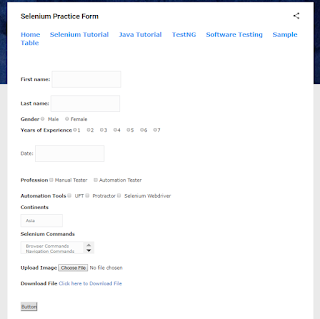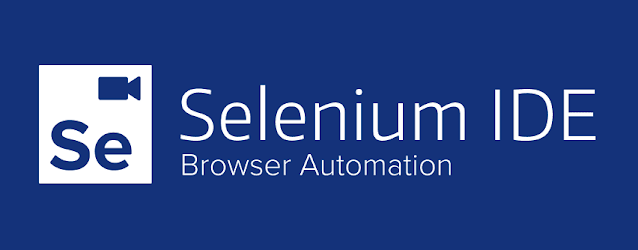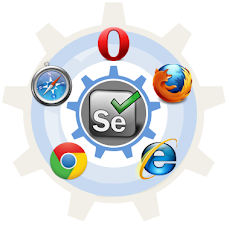1. Introduction to Appium
1.1 What is Appium?
Appium is an open-source, cross-platform tool for automating mobile application testing. It supports iOS, Android, and Windows platforms, and it allows you to write tests using a variety of programming languages including Java, JavaScript, Ruby, Python, C#, and others.
Appium is based on the WebDriver protocol, which means it uses the same API as Selenium WebDriver to interact with the mobile application. This makes it easy for developers and testers who are already familiar with Selenium WebDriver to start using Appium without any additional learning curve.
Appium supports different types of mobile applications, including native, hybrid, and mobile web applications. It provides a set of APIs that can be used to automate various mobile app functions such as interacting with UI elements, simulating user gestures, and checking the state of the application.
In this tutorial, we will explore the basics of Appium and how to set up an environment to get started with automated testing using Appium.
Table of Contents for an Appium Tutorial
1. Introduction to Appium
1.1 What is Appium?
1.2 Benefits of Appium
1.3 Appium Concepts and Terminology
1.4 Appium Server and Desired Capabilities
1.5 Appium Architecture
5. Automating Mobile Web Applications with Appium
5.1 Configuring Mobile Browsers for Appium Testing
5.2 Writing Appium Test Scripts for Web Apps
5.3 Handling Web Elements and Interactions
5.4 Working with Web-Based Alerts and Pop-ups
6. Advanced Appium Techniques
6.1 Working with Hybrid Mobile Apps
6.2 Synchronization and Waits in Appium
6.3 Appium Parallel Execution
6.4 Performance and Load Testing with Appium
7. Best Practices for Appium Mobile Automation
7.1 Test Case Design and Organization
7.2 Test Data Management
7.3 Error Handling and Reporting
7.4 Continuous Integration and DevOps Integration
8. Troubleshooting and Debugging in Appium
8.1 Common Issues and Solutions
8.2 Debugging Appium Tests
8.3 Logging and Error Handling
9. Appium with Test Frameworks
9.1 Integrating Appium with TestNG
9.2 Appium with JUnit
9.3 Appium with Cucumber
9.4 Appium with Robot Framework
10. Appium Tips and Tricks
10.1 Appium Configuration Optimization
10.2 Test Stability and Reliability Enhancement
10.3 Performance Tuning and Optimization
1.2. Benefits of Appium
1. Cross-Platform Support: Appium provides cross-platform support, allowing you to write tests for both iOS and Android platforms using a single codebase. It eliminates the need to write separate tests for different platforms, saving time and effort.
2. Open-Source: Appium is an open-source tool, which means it is freely available and has a large and active community. This makes it easy to find resources, documentation, and community support for any issues or questions you may have.
3. Native App Testing: Appium allows you to automate native mobile applications, giving you the ability to interact with UI elements and test the functionality of your app on real devices or emulators.
4. Web App and Hybrid App Testing: In addition to native app testing, Appium also supports the testing of web applications and hybrid applications. This makes it a versatile tool for testing different types of mobile applications.
5. Cross-Platform Language Support: With Appium, you can write your test scripts in multiple programming languages, including Java, Python, JavaScript, Ruby, and C#. This gives you flexibility and allows you to leverage your existing programming skills.
6. Large Device and OS Compatibility: Appium supports a wide range of devices and operating systems, including iOS, Android, and Windows. It provides compatibility with various versions of mobile operating systems, ensuring your tests can run on different devices and platforms.
7. Seamless Integration with Testing Frameworks: Appium integrates well with popular testing frameworks like TestNG, JUnit, and NUnit. This allows you to leverage the features and capabilities of these frameworks and easily incorporate Appium into your existing testing infrastructure.
1.3. Appium Concepts and Terminology
Appium is a popular open-source framework for automating mobile applications across multiple platforms. Before diving into the practical aspects of using Appium, it's essential to understand some key concepts and terminology. In this tutorial, we will explore the fundamental concepts of Appium.
1. Mobile Automation:
i. Mobile automation refers to the process of automating mobile applications to perform testing, functional verification, and regression testing.
ii. With Appium, you can write automation scripts that interact with mobile apps just as a real user would, performing actions like tapping buttons, entering text, and verifying elements.
2. Native, Hybrid, and Mobile Web Apps:
i. Native apps are built specifically for a particular mobile platform, such as iOS or Android, using platform-specific programming languages and frameworks.
ii. Hybrid apps are a combination of native and web apps. They are typically built using web technologies like HTML, CSS, and JavaScript and run inside a native container.
iii. Mobile web apps are websites designed to be accessed on mobile devices through a web browser.
3. Test Frameworks:
i. Test frameworks provide a structured and organized way to write and execute tests. Examples include TestNG, JUnit, PyTest, and Cucumber.
ii. Appium integrates with various test frameworks, allowing you to write and execute mobile automation tests using your preferred framework.
4. Automation API:
i. Appium provides an automation API that enables interaction with mobile devices and apps programmatically.
ii. The API exposes methods and functions to perform actions like tapping, swiping, entering text, and verifying elements within the app.
1.4. Appium Server and Desired Capabilities
Appium operates as a client-server architecture, where the Appium Server acts as a bridge between the automation scripts and the mobile devices or emulators. Let's explore the concept of the Appium Server and its desired capabilities.
1. Appium Server:
i. The Appium Server is responsible for receiving commands from the automation scripts and executing them on the connected devices or emulators.
ii. It provides the necessary interfaces and services to manage device connections, interact with mobile apps, and handle automation commands.
2. Desired Capabilities:
i. Desired capabilities are a set of key-value pairs that define the desired state and behavior of the Appium Server and the target devices.
ii. They specify device-specific information such as platform name, platform version, device name, app package, app activity, and more.
iii. Automation scripts pass the desired capabilities to the Appium Server when establishing a connection, allowing the server to configure itself accordingly.
3. Starting the Appium Server:
i. Before running automation scripts, you need to start the Appium Server either using the command line or through automation frameworks like Selenium Grid.
ii. The server listens to a specific host and port combination, waiting for automation requests from the scripts.
4. Connecting Automation Scripts:
i. Automation scripts written in programming languages like Java, Python, Ruby, etc., establish a connection with the running Appium Server.
ii. They pass the desired capabilities to the server during the connection setup, specifying the target device and app details.
1.5. Appium Architechture
Appium architecture is a crucial aspect to understand how Appium works and facilitates mobile automation. It involves various components and layers that interact to enable cross-platform mobile testing. Here's an overview of the Appium architecture:
1. Appium Server:
i. The core component of the architecture is the Appium Server, which acts as a bridge between the test scripts and the mobile devices or emulators.
ii. It receives the commands from the test scripts and translates them into the corresponding actions on the target devices.
iii. The Appium Server can be started and configured using different interfaces, such as a command-line interface or through automation frameworks like Selenium Grid.
2. JSON Wire Protocol:
i. The Appium Server communicates with the test scripts using the JSON Wire Protocol, which is a standardized protocol for sending and receiving commands and responses in JSON format.
ii. The test scripts send the desired capabilities, test commands, and other parameters to the Appium Server through the JSON Wire Protocol.
3. Appium Clients:
i. Appium provides client libraries in various programming languages (such as Java, Python, Ruby, etc.) that allow testers to write automation scripts in their preferred language.
ii. These client libraries provide a set of methods and functions to interact with the Appium Server using the JSON Wire Protocol.
iii. Test scripts written in these client libraries send commands and receive responses from the Appium Server.
4. Device Drivers:
i. Device drivers are responsible for establishing a communication channel between the Appium Server and the target mobile devices or emulators.
ii. Appium utilizes different device drivers based on the platform being tested:
- For iOS: Appium uses WebDriverAgent (WDA) for automating iOS devices.
- For Android: Appium uses the UiAutomator2 or Espresso frameworks for automating Android devices.
- For other platforms like Windows or FirefoxOS, different drivers are used.
5. Mobile Platforms:
i. Appium supports multiple mobile platforms, including iOS, Android, Windows, and FirefoxOS.
ii. Each platform has its own automation framework or APIs that Appium leverages to interact with the user interface elements, access device functionalities, and execute test commands.
6. Automation Script Execution:
i. The test scripts written using the Appium client libraries send the desired capabilities, test commands, and parameters to the Appium Server.
ii. The Appium Server translates these commands into platform-specific automation commands using the appropriate device driver and sends them to the target device or emulator.
iii. The device driver executes the automation commands on the target device, interacting with the user interface and capturing responses.
iv. The responses or results are sent back to the Appium Server, which forwards them to the test scripts.
Understanding the Appium architecture helps testers and developers comprehend the underlying components and their interactions, enabling them to effectively write and execute mobile automation tests using Appium.
Conclusion
In conclusion, Appium is a powerful tool for mobile automation testing that allows developers to automate tests for both Android and iOS applications. With Appium, you can write tests in your preferred programming language, making it accessible to developers with varying levels of experience.
Author
Vaneesh Behl
Passionately writing and working in Tech Space for more than a decade.









.png)











Comments
Post a Comment